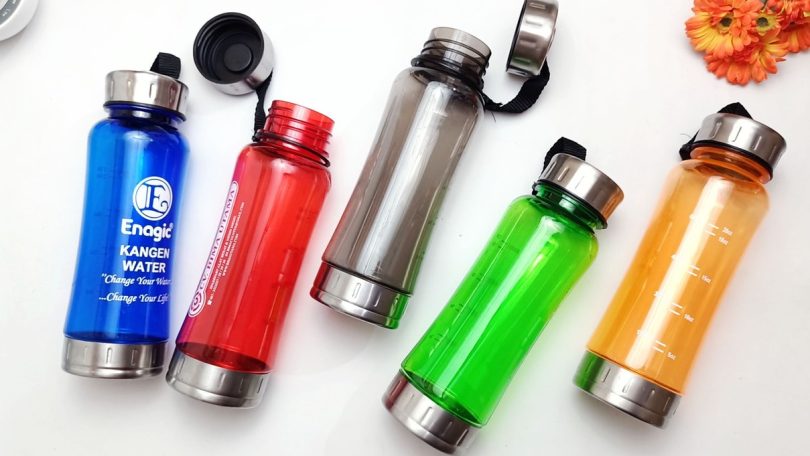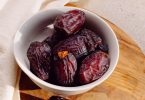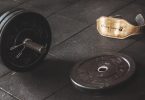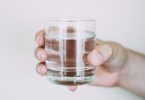Introduction
Staying hydrated is essential for overall health and well-being, but it becomes even more crucial when engaging in physical activity, such as workouts. Whether you’re a professional athlete, a fitness enthusiast, or someone just starting their fitness journey, maintaining proper hydration during exercise is key to optimizing performance, preventing dehydration, and ensuring a safe and effective workout. In this article “The Importance of Hydration During Workouts”, we will explore the importance of hydration during workouts and provide some practical tips to help you stay hydrated and get the most out of your exercise sessions.
When you exercise, your body undergoes various physiological changes. You sweat to cool down, your heart rate increases, and your muscles work harder. All of these processes require water to function properly. Water acts as a transport medium for nutrients and oxygen, helps regulate body temperature, lubricates joints, and aids in the removal of waste products. Without adequate hydration, your body’s ability to perform at its best diminishes, and you may experience negative effects on your overall workout performance.
Hydration plays a vital role in optimizing your workout performance and overall well-being.
Here are ten benefits of staying hydrated during your workouts:
- Enhanced Performance: Proper hydration helps maintain optimal body temperature and prevents overheating during exercise. This allows your muscles to work efficiently, improving your performance and endurance.
- Increased Energy Levels: When you’re adequately hydrated, your body can deliver oxygen and nutrients to your muscles more effectively, resulting in improved energy levels and reduced fatigue during workouts.
- Improved Focus and Concentration: Dehydration can impair cognitive function, making it difficult to stay focused and motivated during your workout. By staying hydrated, you can enhance your mental clarity and concentration, enabling you to perform at your best.
- Better Nutrient Absorption: Water acts as a transport medium, aiding in the absorption and distribution of nutrients throughout your body. By staying hydrated, you ensure that your muscles receive the necessary nutrients for growth, repair, and recovery.
- Joint Lubrication: Hydration is essential for maintaining the lubrication of your joints. Water helps cushion your joints and facilitates smooth movement, reducing the risk of joint pain or injuries during your workout.
- Efficient Waste Removal: When you exercise, metabolic waste products, such as lactic acid, accumulate in your muscles. Hydration supports proper kidney function, allowing for efficient removal of these waste products, which can help prevent muscle cramps and soreness.
- Temperature Regulation: Sweating is your body’s natural cooling mechanism. By staying hydrated, you ensure an adequate supply of fluids to replace the sweat you lose during workouts, helping regulate your body temperature and preventing overheating.
- Electrolyte Balance: Electrolytes, such as sodium, potassium, and magnesium, are essential for proper muscle function, nerve signaling, and fluid balance in your body. Hydration supports electrolyte balance, ensuring optimal muscle contraction and preventing muscle cramps.
- Enhanced Recovery: Hydration is a crucial component of the recovery process. Proper fluid intake after a workout helps replenish glycogen stores, repair damaged tissues, and reduce muscle soreness, enabling faster recovery and preparation for future workouts.
- Overall Health and Well-being: Hydration is vital for your overall health and well-being, and regular exercise is no exception. Staying hydrated during workouts supports your immune system, aids digestion, and promotes healthy skin, making you feel better both during and after your exercise sessions.
One of the primary reasons hydration is crucial during workouts is to prevent dehydration. Dehydration occurs when your body loses more fluids than it takes in, and it can have serious consequences on your health and exercise performance. Even mild dehydration can lead to fatigue, dizziness, reduced cognitive function, and muscle cramps. Severe dehydration can cause heatstroke, organ failure, and even be life-threatening.
To ensure proper hydration during workouts, it’s important to understand your individual fluid needs. The amount of water you need depends on factors such as the intensity and duration of your exercise, environmental conditions, your body size, and your sweat rate. As a general guideline, aim to drink about 16-20 ounces (500-600 ml) of water two to three hours before your workout. During the exercise session, aim to consume 7-10 ounces (200-300 ml) of water every 10-20 minutes. After your workout, replenish the fluids you lost by drinking at least 16-24 ounces (500-700 ml) of water for every pound (0.5 kg) of body weight lost during exercise.
While water is the primary fluid to keep you hydrated, certain workouts may require additional considerations. For intense or prolonged exercise lasting longer than an hour, it may be beneficial to consume sports drinks or electrolyte-rich beverages. These beverages contain electrolytes like sodium, potassium, and magnesium, which help maintain the body’s fluid balance and replace the minerals lost through sweating. However, for shorter or less intense workouts, water is usually sufficient to meet your hydration needs.
It’s worth noting that thirst alone is not a reliable indicator of your hydration status. By the time you feel thirsty, your body is already partially dehydrated. Therefore, it’s important to establish a regular hydration routine and drink fluids even if you don’t feel thirsty during your workout. Monitoring the color of your urine is another helpful way to gauge your hydration level. Clear or light yellow urine indicates adequate hydration, while darker urine may be a sign of dehydration.
In addition to proper fluid intake, pre-workout hydration begins before you even hit the gym. Start your day with a glass of water and make sure to drink fluids consistently throughout the day. This will help ensure that you start your workout adequately hydrated. It’s also a good idea to avoid or limit caffeine and alcohol intake, as these substances can increase fluid loss and hinder hydration efforts.
During your workout, carrying a water bottle or having access to a water source is essential. Make it a habit to take regular sips of water during breaks or whenever you feel the need. If you’re exercising outdoors in hot weather, take extra precautions by wearing lightweight, breathable clothing and seeking shade whenever possible.
Remember, the key to staying properly hydrated during workouts is to drink fluids regularly before, during, and after exercise. Everyone’s hydration needs may vary, so it’s important to listen to your body, monitor your urine color, and adjust your fluid intake accordingly. By prioritizing hydration, you can maximize the benefits of your workouts and enjoy a safe, effective, and enjoyable fitness journey.
For more please Click Here.








